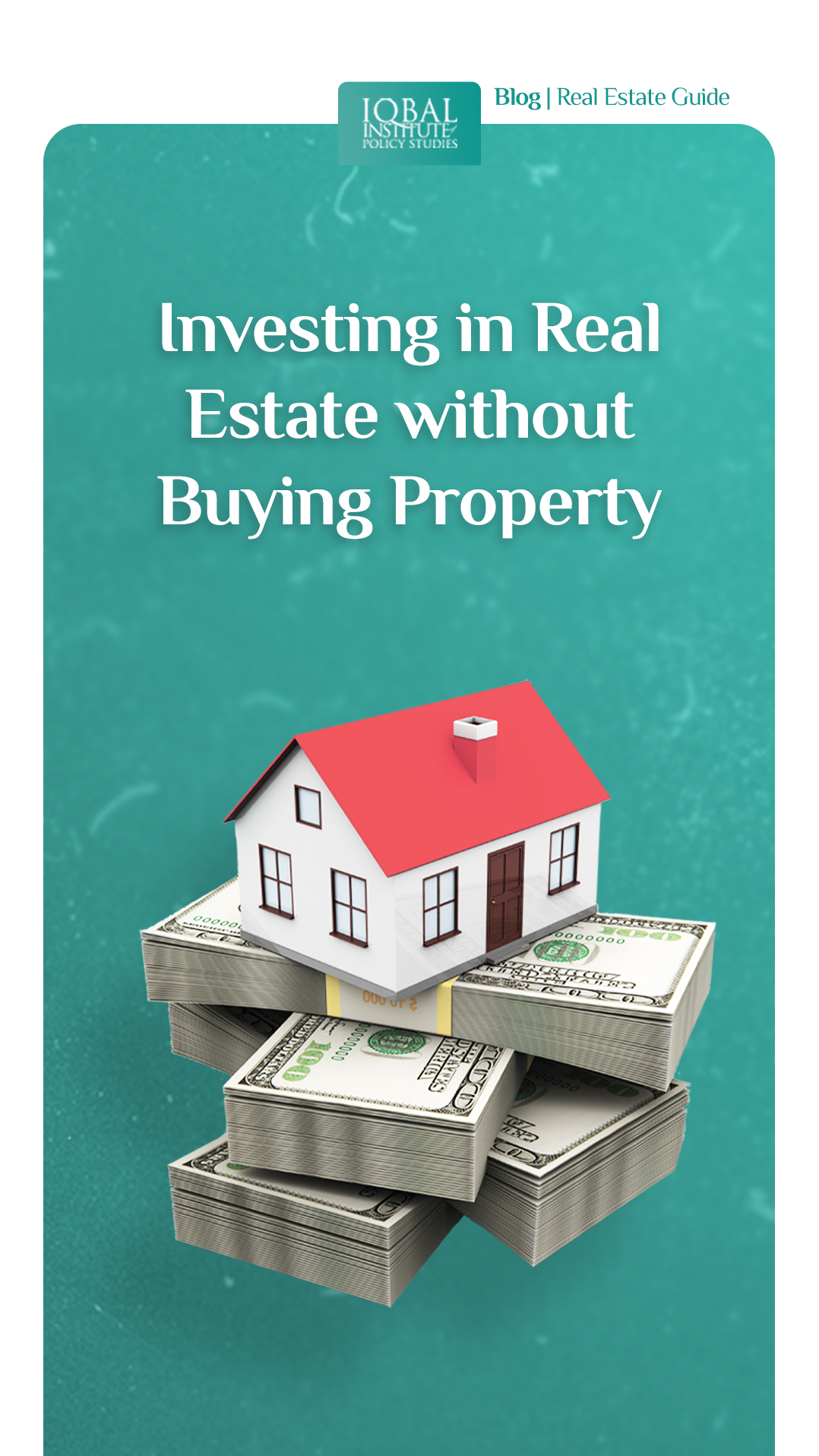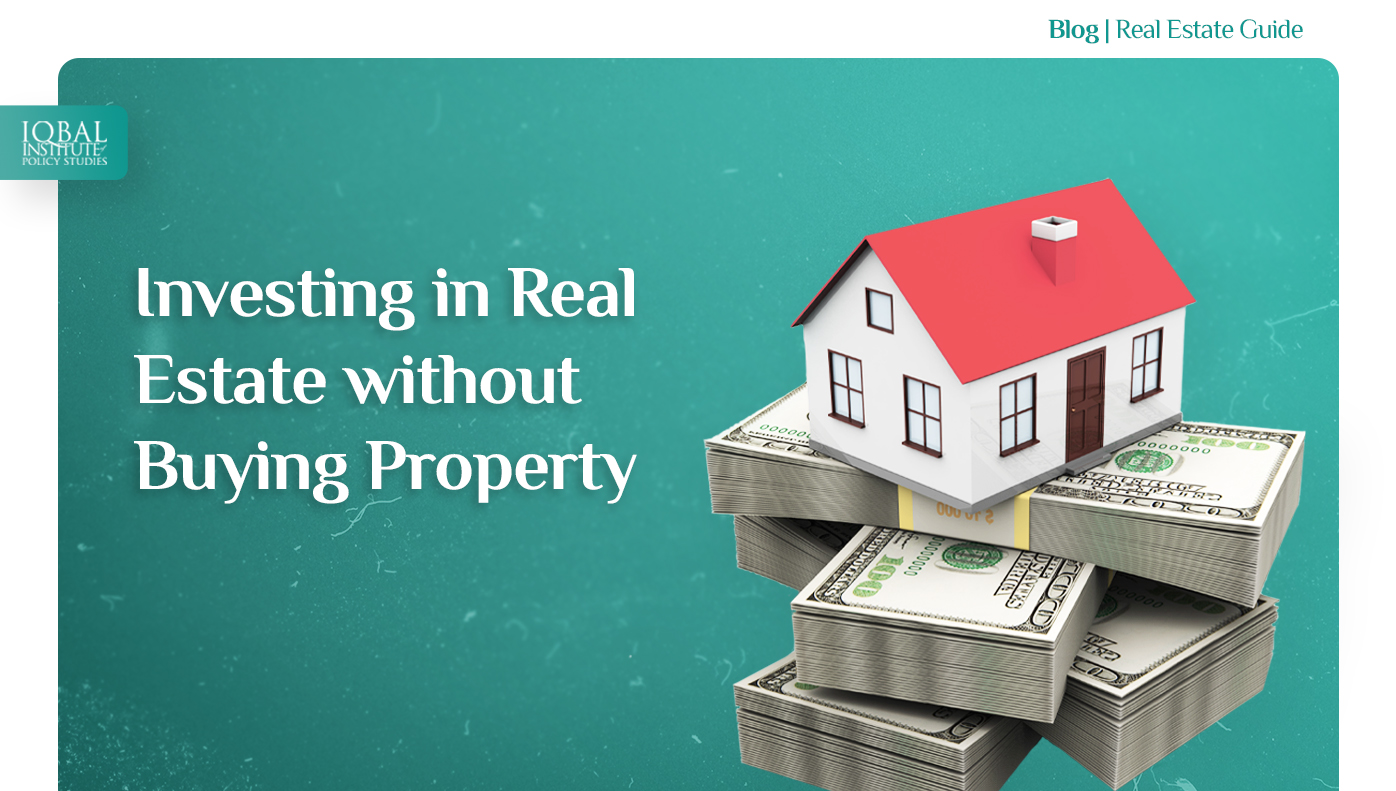When people think of investing in real estate, they immediately think of purchasing a property to rent or buying and selling a home. In Pakistan, becoming a property owner and renting a house to tenants are considered traditional asset-backed investment methods in the real estate market. However, both options bring financial burdens in the form of down payment or closing costs, averaging 10%-15% and 5%-6%, respectively (State Bank of Pakistan). Along with these financial strains, one will also have the responsibility of being a landlord or must deal with the hassles of buying and selling a property. But today, the real estate market has been transformed and is not only linked to these two options. There are several other ways to invest in the real estate market without acquiring a property.
Here are some of the best ways to invest in real estate today without buying a property:
-
REITs
-
REIT ETFs
-
Mutual Funds
-
Construction Companies
-
Real Estate Companies
-
Real estate notes
-
Wholesaling
-
Real Estate Crowdfunding
Investing in REITs
Real Estate Investment Trusts (REITs) own, manage, and finance real estate properties across multiple categories. Buying shares in a REIT allows investors to hold a small part of the property portfolio that the REITs own. The investor then gets a percentage of the income generated by these properties. There are two types of REITS, equity and mortgage. Equity REITs generate revenue primarily from tenants of the properties and real estate they own. Mortgage REITs are investment trusts that provide mortgages and loans to property owners. Their income is generated through their net interest.
Investing in Real Estate ETFs
Exchange-Traded Funds (ETFs) are an effective alternative to investing in actual real estate. A basket of securities trades on an exchange just like a stock does. It is a low-cost investment with a minimum risk and helps diversify an investor’s funds. ETFs allow investors to obtain a bundle of real estate-related stocks, bonds, and securities. Through ETFs, an investor receives transparency from an investment usually absent from traditional real estate investments.
Investing in Mutual Funds
Mutual funds are another low-cost and effective way to invest in the real estate market. These funds provide investors with the diversification that they need in their portfolios. Investors can start their investment from as little as Rs. 5,000. The investors are not responsible for selecting the stocks and bonds to be purchased with their savings or the day-to-day management and safekeeping of the investments chosen. Mutual funds provide regular income and an opportunity for increasing savings with reinvestment.
Investing in Real Estate Companies
Investing in real estate companies allows investors to maintain a hold within the real estate sector without investing in physical property. These companies specialise in real estate development, buying and selling properties, and investing in real estate-oriented businesses. Investing in these companies offers several advantages to investors. Real estate companies are also up to date with market trends and allow for a much safer investment option for beginners. It must be noted that not every real estate company is viable for investment. Rather, one should analyse the track record of a particular company before investing their hard-earned money in it.
Investing in Real Estate Notes
Real estate/Mortgage notes are basic “IOU” guarantees and secured on a property. While investing in real estate notes, income continues to generate and compound, even when you are not directly and actively involved. Real estate notes support the process of purchasing debt and its security instrument. Investors become lenders when investing in a mortgage note and start collecting payments from the borrowers. Investing in real estate notes generates passive income, needs lower expenses, eliminates the need to pay real estate agents, and offers a high return on investment.
Wholesaling
Wholesaling is one of the most common ways investors invest in real estate without owning any property. In Wholesaling, an investor has a contract to buy a property, but instead of buying, the investor sells his right to the contract to another investor for a fee. It can be done with lower amounts of capital as one is not buying the property. The wholesaler contracts the home with a buyer at a higher price than the seller, keeping the difference as profit. A real estate wholesaler doesn’t do any renovations or additions and carries no costs.
Investing in Real Estate Crowdfunding
Crowdfunding is financing a project through small investments from a group of investors. The method enables investors to invest in real estate without owning, financing, or managing properties. It requires minimum investment and generates high-profit potential through distributions and a tax-free return at the end of the investment. Through crowdfunding, investors can invest far lower capital toward any single property, sometimes as low as $500 or $1,000.
Conclusion
Investments in real estate are one of the most profitable sources of income and wealth creation. From cash flows to excellent returns, real estate is rapidly becoming the favourite investment choice of millions of investors worldwide. Other than the ways discussed above in the article, there is also a wide array of avenues to invest in real estate, including rental incomes, real estate investment groups (REITs), property flipping, and online real estate platforms are among the most popular methods of investing in real estate without owning a property. Each method is suitable for different investors; therefore, a wide range of investors can consider real estate while diversifying their portfolios.



Leave a Reply